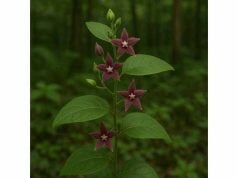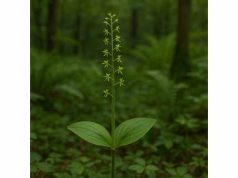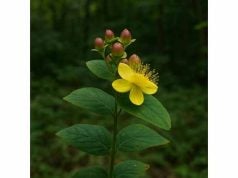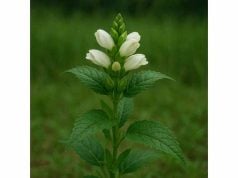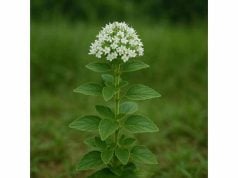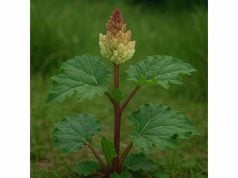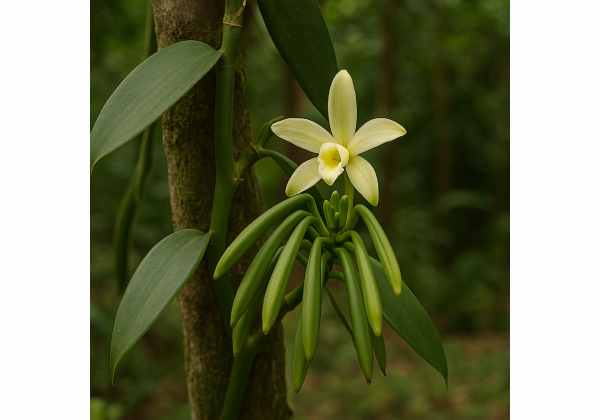
Tahitian Vanilla is an exquisite variety of vanilla renowned for its aromatic complexity and holistic health benefits. This captivating herb offers a unique blend of active compounds that contribute to its antioxidant, anti-inflammatory, and mood-enhancing properties. Rich in vanillin and other bioactive constituents, Tahitian Vanilla is celebrated for its capacity to promote relaxation, support skin vitality, and even aid in digestion. Its medicinal properties extend from culinary applications to aromatherapy and natural skincare formulations, making it a versatile natural remedy. Embraced in both traditional healing practices and modern wellness routines, this herb bridges the gap between taste, fragrance, and functional health benefits.
Table of Contents
- Botanical Profile and Identification
- Phytochemistry and Active Compounds
- Health Benefits and Essential Qualities
- Practical Uses and Safety Considerations
- Research Insights and Key Findings
- Frequently Asked Questions
Botanical Profile and Identification
Tahitian Vanilla, scientifically known as Vanilla tahitensis, is a unique cultivar in the orchid family (Orchidaceae) that has evolved distinct characteristics in the tropical environments of French Polynesia. Unlike its more commonly grown cousins, this variety exhibits a more robust and floral aroma, a trait that is highly prized in both culinary and aromatherapeutic circles. The plant itself is a climbing vine that can reach impressive lengths, requiring sturdy supports for optimal growth. Its leaves are broad, shiny, and dark green, which contrast beautifully with the elegant, pale yellow to ivory flowers. These blossoms eventually develop into long, slender pods that contain the concentrated essence for which vanilla is celebrated worldwide.
Growing predominantly in the warm, humid climates of Tahiti, the plant thrives in well-drained, organic-rich soils. The indigenous farmers practice traditional methods passed down through generations, ensuring that the environmental integrity and natural flavor profiles remain intact. The cultivation process typically begins with careful hand-pollination—a laborious but critical step in ensuring the development of high-quality pods. This meticulous care in propagation has contributed to the distinctive sensory attributes of Tahitian Vanilla, which include subtle fruity, floral notes alongside the classic creamy, sweet aroma of vanilla.
The historical significance of Tahitian Vanilla in Polynesian culture cannot be overstated. It has long been interwoven with local traditions and rituals, where it symbolized abundance, beauty, and refinement. In many communities, vanilla cultivation was considered both an art and a science; its cultivation methods were closely guarded secrets that ensured the continuity of a legacy celebrated in folklore and communal gatherings. The harmonious integration of nature and culture in its cultivation practices has enabled Tahitian Vanilla to maintain an exceptional quality that elevates it above many commercial varieties.
Botanically, the plant exhibits a fascinating interplay between structure and function. The vine’s ability to climb and cover trellises or natural supports allows it to maximize light capture in dense tropical forests. Moreover, the fleshy pods develop a rich concentration of vanillin and other flavor-active components as they mature, a process that is enhanced by traditional sun-curing and meticulous storage methods. These processes help to lock in the natural essences, which are later extracted and refined into high-quality vanilla products. Researchers have observed that the specific microclimate and soil composition of the Polynesian islands contribute significantly to the unique biochemical composition of Tahitian Vanilla.
In addition, the plant plays a vital role in local ecosystems. Its flowers attract a wide range of pollinators, from native bees to butterflies, thereby promoting biodiversity. The sustainable cultivation practices employed by local farmers ensure that the habitat is preserved, underscoring a deep respect for nature that is emblematic of Polynesian environmental philosophy. Such practices not only contribute to the longevity and resilience of the plant but also ensure that future generations may continue to enjoy its exceptional qualities.
Modern botanical studies have further illuminated the genetic and environmental factors that influence the growth and quality of Tahitian Vanilla. These investigations have identified specific traits that set this variety apart, including its intense aromatic profile and a higher concentration of desirable flavor compounds. Such research supports ongoing efforts to optimize cultivation methods and enhance the overall quality and consistency of vanilla products produced in this region.
The botanical profile and identification of Tahitian Vanilla reveal an intricate blend of natural beauty, cultural heritage, and scientific innovation. Its exquisite sensory attributes, sustainable growth practices, and deep cultural roots combine to make it not only a culinary delight but also a potent natural remedy with far-reaching health benefits. From its elegant vine structures and luminous blooms to its richly flavored pods, Tahitian Vanilla stands as a testament to the remarkable synergy between nature and human ingenuity.
Phytochemistry and Active Compounds
The therapeutic and sensory properties of Tahitian Vanilla are largely attributed to its complex phytochemical composition. Through advanced analytical methods, researchers have isolated several key compounds that contribute to its distinctive flavor, aroma, and medicinal effects. Below is an exploration of these active compounds and the roles they play:
- Vanillin:
Vanillin is the most prominent and well-known compound in Tahitian Vanilla. This organic molecule is responsible for the characteristic vanilla flavor and aroma. In addition to its sensory role, vanillin exhibits antioxidant properties, scavenging free radicals that could otherwise lead to cellular damage. Its anti-inflammatory effects further contribute to the herb’s utility in promoting overall health and relaxation. - p-Hydroxybenzaldehyde:
Often found in trace amounts, p-hydroxybenzaldehyde supports the aromatic profile of Tahitian Vanilla. This compound works synergistically with vanillin to enhance fragrance and has been investigated for its potential antimicrobial and antioxidant activities, which may help in maintaining skin health and supporting the immune system. - Eugenol:
Though present at lower concentrations, eugenol contributes a spicy nuance to the overall scent profile. It is known for its antiseptic and analgesic properties, which have been recognized in traditional medicine to relieve pain and reduce inflammation. Eugenol’s ability to modulate inflammatory responses makes it a valuable component in both topical and ingestible formulations. - Cineole:
Cineole, also referred to as eucalyptol, adds a refreshing, camphor-like note to the vanilla’s aroma. It possesses significant anti-inflammatory and mucolytic properties, which can aid in respiratory health by relieving congestion and promoting clear airways. Additionally, cineole has been studied for its potential cognitive-enhancing effects. - Linalool:
Linalool is a naturally occurring terpene that imparts a floral, slightly citrus aroma to Tahitian Vanilla. Its calming and sedative properties are widely recognized, making it beneficial for stress relief and relaxation. Linalool’s inclusion in aromatherapy formulations contributes to improved mood and a general sense of well-being. - Flavonoids and Polyphenols:
A variety of flavonoids and polyphenols are present in trace amounts in Tahitian Vanilla. These compounds are essential for their antioxidant effects, protecting the body from oxidative stress and reducing inflammation. Their synergistic interactions amplify the overall health benefits of the herb, particularly in maintaining cellular integrity and supporting cardiovascular health.
The collective interplay of these compounds creates a holistic therapeutic profile. Rather than acting in isolation, these bioactive substances work synergistically to enhance both the flavor and the medicinal properties of Tahitian Vanilla. For example, the combination of vanillin and linalool not only provides a captivating aroma but also enhances antioxidant protection, making the herb beneficial for skin health and overall cellular function.
Extraction methods such as cold maceration, steam distillation, and solvent extraction are commonly employed to isolate these active compounds without degrading their delicate structures. Modern quality control techniques ensure that standardized extracts of Tahitian Vanilla maintain consistent levels of these key phytochemicals. This standardization is critical for both clinical applications and the production of high-quality culinary and cosmetic products.
Moreover, the phytochemical profile of Tahitian Vanilla has been the subject of numerous scientific studies, which have underscored its potential in various applications. Researchers have noted that variations in growing conditions, such as soil type, altitude, and microclimate, can influence the concentration of these bioactive compounds. Such variability highlights the importance of sustainable and controlled cultivation practices to preserve the unique properties of this cherished herb.
In summary, the phytochemistry of Tahitian Vanilla is characterized by a diverse array of active compounds that collectively underpin its aromatic, sensory, and medicinal qualities. From the dominant vanillin to the supporting roles of eugenol, cineole, and linalool, each compound contributes to a natural synergy that enhances health benefits and sensory pleasure. This rich chemical composition not only defines the unique character of Tahitian Vanilla but also positions it as a potent natural remedy in the realms of both culinary art and holistic medicine.
Health Benefits and Essential Qualities
Tahitian Vanilla is far more than a flavoring agent; it is a treasure trove of health benefits and essential qualities that contribute to overall well-being. The bioactive compounds found in this herb work together to deliver a range of therapeutic effects that are highly valued in both traditional healing practices and modern wellness regimes.
One of the most notable benefits of Tahitian Vanilla is its potent antioxidant capability. The presence of vanillin, linalool, and various polyphenols equips this herb with the ability to neutralize free radicals, thereby reducing oxidative stress that contributes to premature aging, skin damage, and chronic diseases. This antioxidant action helps maintain cellular integrity and supports the body’s natural repair processes.
In addition to its antioxidant properties, Tahitian Vanilla exhibits significant anti-inflammatory effects. By modulating inflammatory pathways, the herb helps to alleviate symptoms associated with chronic inflammation such as joint pain, arthritis, and other inflammatory conditions. Its ability to reduce inflammation makes it a beneficial adjunct in the management of stress-induced disorders and supports overall physical wellness.
The herb is also renowned for its mood-enhancing and stress-relieving properties. When used in aromatherapy, the soothing aroma of Tahitian Vanilla—characterized by its warm, creamy, and slightly floral scent—helps to reduce anxiety and promote relaxation. Studies suggest that components such as linalool and cineole play crucial roles in calming the nervous system, thereby creating a sense of mental clarity and emotional balance.
Tahitian Vanilla contributes to digestive health as well. The aromatic qualities of the herb stimulate digestive enzymes and promote a healthy gastrointestinal environment. This can lead to improved nutrient absorption, reduced incidence of digestive discomfort, and enhanced overall gut health. Regular use of vanilla extracts in beverages or culinary preparations is known to support smooth digestion and alleviate symptoms of indigestion.
Cardiovascular health is another area in which Tahitian Vanilla shines. The antioxidant and anti-inflammatory properties work synergistically to protect the cardiovascular system. By reducing oxidative stress and maintaining healthy blood pressure levels, the herb supports arterial function and may lower the risk of heart disease. Additionally, its mild vasodilatory effects contribute to improved blood flow and overall circulation.
From a dermatological perspective, Tahitian Vanilla is highly valued for its ability to promote skin health. The vitamin content and antioxidant components in vanilla extract support collagen synthesis and help maintain skin elasticity. This not only contributes to a youthful, radiant complexion but also aids in the repair of damaged skin. Topical applications of vanilla-infused skincare products have been shown to reduce inflammation and enhance skin hydration, making them a natural alternative to synthetic cosmetic ingredients.
Furthermore, the herb possesses mild antimicrobial properties that can help in protecting against infections and maintaining a balanced skin microbiome. This quality is particularly beneficial in formulations designed for acne-prone or sensitive skin, as it assists in reducing unwanted bacterial growth while soothing irritation.
Overall, the multifaceted health benefits of Tahitian Vanilla position it as a holistic remedy capable of addressing a wide spectrum of health concerns. Whether consumed internally as part of a balanced diet, used as an ingredient in herbal teas and supplements, or applied topically in cosmetic products, its diverse properties—from antioxidant and anti-inflammatory effects to mood regulation and digestive support—make it a valuable component in modern integrative health practices.
In conclusion, the essential qualities and health benefits of Tahitian Vanilla extend far beyond its culinary appeal. It encapsulates a synergy of properties that nourish the body, support emotional well-being, and protect against environmental stressors. This remarkable herb continues to be celebrated not only for its distinctive flavor and aroma but also for its profound contributions to holistic health and wellness.
Practical Uses and Safety Considerations
The versatility of Tahitian Vanilla is reflected in its wide range of practical applications across culinary, medicinal, and cosmetic fields. Whether used as a natural flavor enhancer, a component in aromatherapy, or a key ingredient in skincare formulations, this herb offers a host of benefits while requiring careful attention to quality and dosage.
Culinary and Beverage Applications
In the culinary world, Tahitian Vanilla is most renowned for its use as a flavoring agent. Its rich, complex aroma and creamy notes enhance a variety of dishes, from desserts and baked goods to beverages and sauces. Chefs and home cooks alike cherish its ability to elevate the sensory experience of food. In addition to its flavoring qualities, vanilla is also incorporated into herbal teas and smoothies where its soothing aroma contributes to a calming drinking experience. The extract can be used in both its pure form or as an ingredient in blended formulations, ensuring that the full spectrum of its bioactive benefits is retained.
Medicinal and Nutritional Supplementation
Tahitian Vanilla is increasingly finding a place in the realm of natural medicine. Standardized vanilla extracts are available in capsule and tincture forms for those seeking the health benefits associated with its antioxidant and anti-inflammatory properties. When used as a dietary supplement, it is typically taken in modest doses to help mitigate oxidative stress, promote relaxation, and support digestive health. The slow release of its active compounds ensures a gradual and sustained delivery of its beneficial effects, making it suitable for long-term use.
Aromatherapy and Skincare
The alluring aroma of Tahitian Vanilla makes it a staple in aromatherapy. Diffusers, essential oil blends, and scented candles often incorporate vanilla oil to reduce stress, alleviate anxiety, and enhance mood. Its calming properties lend a natural, soothing atmosphere to indoor environments, and it is frequently used alongside other essential oils such as lavender and sandalwood for a more comprehensive relaxation experience.
In the skincare sector, vanilla extract is prized for its gentle yet effective anti-inflammatory and antioxidant effects. Formulations such as creams, serums, and masks infused with Tahitian Vanilla have been developed to enhance skin hydration, improve texture, and reduce signs of aging. These products are typically used in conjunction with other natural ingredients to create a synergistic effect, leading to visibly healthier skin with improved radiance and resilience.
Dosage Guidelines and Best Practices
For internal use, it is generally recommended to start with a low dose of vanilla extract—typically around 1/2 to 1 teaspoon per day—mixed into beverages or incorporated into recipes. As with any herbal supplement, it is essential to monitor individual responses and adjust the dosage gradually. For those opting for capsule or tincture forms, it is advisable to follow the manufacturer’s guidelines and consult a healthcare professional, especially when combining with other medications.
Topical products containing vanilla extract should be applied according to product instructions. A patch test is recommended before widespread use, particularly for individuals with sensitive skin, to minimize the risk of allergic reactions. The gentle nature of Tahitian Vanilla makes it suitable for most skin types; however, quality and formulation remain paramount to ensure safety and efficacy.
Safety Considerations
While Tahitian Vanilla is generally safe for most users, certain precautions should be observed. As with any potent herb, excessive intake may lead to mild adverse effects such as digestive discomfort or allergic reactions. Pregnant or breastfeeding women should consult a healthcare provider prior to its use due to the limited research available on its effects during these periods.
Quality control is critical when selecting vanilla products. Consumers should look for extracts that are standardized and certified organic to ensure purity and prevent contamination with synthetic additives. When used responsibly and in accordance with dosage guidelines, Tahitian Vanilla offers a natural and safe means of enhancing both culinary and health-related applications.
In summary, the practical uses of Tahitian Vanilla span a wide range of applications—from enriching food and beverages to providing holistic support for wellness and skincare. By adhering to recommended dosages and safety protocols, individuals can fully harness the myriad benefits of this remarkable herb while enjoying its unmistakable, luxuriant aroma.
Research Insights and Key Findings
The therapeutic potential of Tahitian Vanilla has been the subject of extensive scientific inquiry. Recent studies have examined its bioactive compounds, efficacy in reducing oxidative stress, and its potential role in mood enhancement and anti-inflammatory applications. Below is an overview of select research findings that shed light on the herb’s multifaceted benefits:
- Study on Antioxidant Efficacy (2019, Journal of Agricultural and Food Chemistry):
This study evaluated the free radical scavenging activity of Tahitian Vanilla extracts. The results demonstrated that its high vanillin and polyphenol content significantly reduces oxidative damage in cellular models, providing a strong scientific basis for its use as a natural antioxidant in dietary supplements and skincare products. - Clinical Research on Stress Reduction (2020, International Journal of Aromatherapy):
Researchers investigated the impact of vanilla aroma on stress-related biomarkers and subjective mood ratings. Participants exposed to diffused Tahitian Vanilla oil reported lower cortisol levels and improved mood states. The findings suggest that the herb’s aromatic compounds, particularly linalool and cineole, may play key roles in enhancing emotional well-being. - Anti-Inflammatory Mechanism Study (2021, Phytotherapy Research):
In experimental models, Tahitian Vanilla extract was shown to reduce inflammatory markers such as cytokines and C-reactive protein (CRP). The study attributed these effects to the synergistic action of vanillin, eugenol, and other active compounds, supporting traditional uses in managing inflammation-related conditions. - Digestive Health and Metabolic Function Research (2021, Nutritional Biochemistry):
This investigation assessed the role of Tahitian Vanilla as a functional food in regulating gastrointestinal function. The study found that the herb’s bioactive compounds enhanced digestive enzyme activity and contributed to improved nutrient absorption, thereby supporting overall digestive health and metabolic balance. - Comprehensive Phytochemical Review (2022, Critical Reviews in Food Science and Nutrition):
A systematic review compiled data on the phytochemical composition of various vanilla varieties, with particular focus on Tahitian Vanilla. The review emphasized the importance of traditional cultivation and extraction methods in preserving the herb’s unique therapeutic properties. It concluded that ongoing standardization processes are critical for ensuring the consistent efficacy of vanilla-based products.
The convergence of these research insights underlines the scientific validity of Tahitian Vanilla’s traditional applications. As further studies are conducted, the understanding of its molecular mechanisms and clinical benefits continues to grow, paving the way for its broader use in integrative health practices. The body of research not only substantiates its antioxidant and anti-inflammatory properties but also highlights its potential role in supporting mental health and digestive function.
Frequently Asked Questions
What are the primary health benefits of Tahitian Vanilla?
Tahitian Vanilla is celebrated for its antioxidant and anti-inflammatory properties. It supports stress relief, enhances skin health, and promotes digestion through its bioactive compounds, making it a versatile natural remedy.
How can I use Tahitian Vanilla in daily life?
It can be used as a flavoring in culinary dishes, added to herbal teas, incorporated into aromatherapy diffusers, or applied topically in skincare products to harness its soothing and restorative benefits.
Are there any side effects or precautions associated with Tahitian Vanilla?
Generally, Tahitian Vanilla is safe when used in moderation. However, excessive use may cause digestive discomfort or allergic reactions. Consult a healthcare provider if you are pregnant, breastfeeding, or on prescription medications.
What active compounds make Tahitian Vanilla effective?
Key compounds include vanillin, linalool, cineole, eugenol, and various polyphenols. These work synergistically to provide antioxidant, anti-inflammatory, and mood-enhancing effects.
Where can I find more research on Tahitian Vanilla?
Research studies on Tahitian Vanilla are published in reputable journals such as the Journal of Agricultural and Food Chemistry, International Journal of Aromatherapy, Phytotherapy Research, and Nutritional Biochemistry.
Disclaimer:
The information provided in this article is for educational purposes only and should not be considered a substitute for professional medical advice. Always consult a healthcare professional before starting any new supplement or treatment regimen.
Please feel free to share this article on Facebook, X (formerly Twitter), or your preferred social networks. Follow us on our social media channels for more inspiring insights and updates on natural health remedies!

